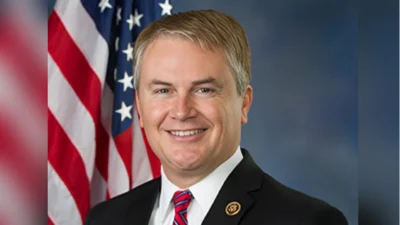Washington, DC- Congresswoman Rosa DeLauro (CT-3), Ranking Member on the Labor, Health, and Human Services Appropriations Subcommittee, made the following opening statement at the Committee's budget hearing today."Thank you and good afternoon. I first want to thank Chairman Rehberg for convening this important hearing.
"And thank you to our witness today, Secretary Kathleen Sebelius. Madam Secretary, thank you for once again coming to testify before this subcommittee. And thank you for all your hard work in implementing the Affordable Care Act, including the recently announced preventive measures for women to be covered without co-pay. It is heartening to work with an administration that understands and respects women's health needs.
"As we consider the President's budget proposal for 2013, we should also bear in mind the context in which it comes. These new proposals arrive after two successive rounds of budget cutting.
"Under the 2012 legislation enacted in December, appropriations for the Department of HHS are $3.4 billion less than the comparable level two years earlier. That is the cut in actual dollar terms, without taking account of rising costs, growing population, or unusually high levels of need.
"Some very important programs and services have been cut. The Low-Income Home Energy Assistance Program, or LIHEAP, has been reduced by $1.6 billion-almost one third-between 2010 and 2012. This has happened at a time when heating oil prices are at record levels, other energy costs remain high, and the lingering effects of the recession leave many people still in need of help with their winter heating bills.
"Another key priority is medical research at the National Institutes of Health to find better treatments and cures for diseases like cancer and Alzheimer's. While we were able to provide a modest increase for NIH in 2012, it was not enough to reverse the cut enacted for 2011. And due to the combination of reduced funding and rising costs, the number of research project grants made by NIH is now at the lowest level since 2001.
"For the CDC, appropriations have been reduced by $735 million over the past two years, meaning cutbacks in capacity to detect and control epidemics and to reduce the prevalence and burden of both chronic and infectious diseases. Programs that help train doctors, nurses and other health care providers have now taken a $90 million reduction since 2010. Mental health programs have been cut by about $50 million.
"Yes, the Department of HHS has received additional funding through the Affordable Care Act for some of the programs that receive appropriations in this bill-though the ACA funding is not enough to make up for the loss in appropriations. But that funding was intended to supplement and expand funding for programs that increase the availability of health care and preventive services, not to simply allow equivalent cuts in regular appropriations.
"And we are now facing the prospect of new rounds of much deeper cuts. There is the threat of sequestration under the Budget Control Act, which could mean an additional 8.5 percent reduction in HHS appropriations for 2013.
"We also hear that some on the majority side do not consider the current caps stringent enough, and want to use the budget resolution to reduce those limits still further. The contenders for the Republican presidential nomination seem to be trying to outdo each other with budget plans calling for huge - though mostly unspecified - future spending cuts. If any of these possibilities materialize, the past cuts I have been describing will look small by comparison.
"So that is the context for the 2013 budget we are discussing today, a proposal which involves a small further reduction in overall HHS appropriations. There are some good things in the proposal. For example, there is a $325 million increase for child care, a critical need for working families. There is also funding to meet the Department's responsibilities in operating Medicare and implementing the Affordable Care Act. And there are small but important increases for food safety and control of healthcare acquired infections.
"There are also some things in the President's budget that greatly concern me. There is yet another reduction to LIHEAP, this one amounting to $452 million. There is a renewed proposal to cut the Community Services Block Grant almost in half. And there are additional rounds of cuts to the CDC, to mental health and substance abuse programs, and to Children's Hospital Graduate Medical Education and other health professions training programs. I very much hope that we will be able to find ways to alleviate or avoid those reductions.
"Secretary Sebelius, I look forward to your testimony and to a discussion of these and other issues."
Source: U.S. Department of HCA









